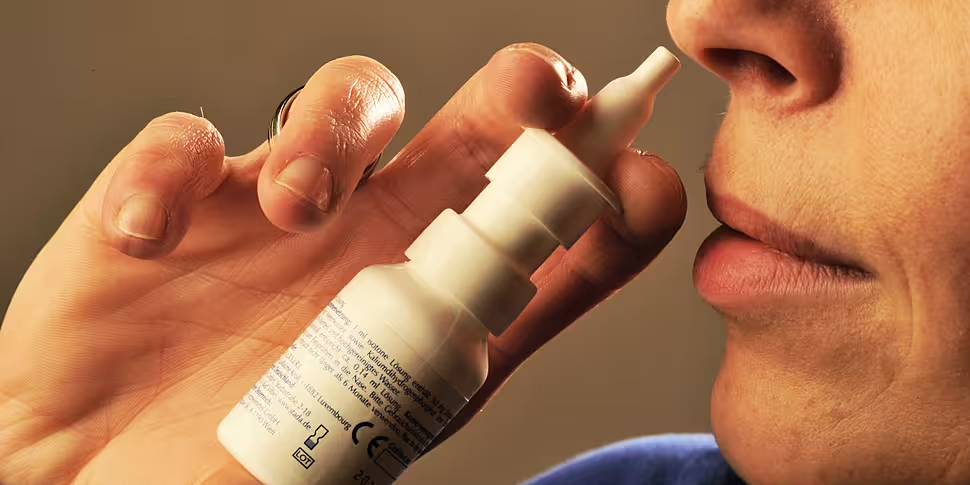Professor Luke O'Neill has said a trial by AstraZeneca for a nasal spray COVID-19 vaccine could see it available in pharmacies.
The Trinity College Dublin immunologist told Pat Kenny trials are currently underway.
"There's a huge effort underway now to replace the injectables.
"It's just a spray up your nose, and they're embarking on a big trial now - mainly in the 18 to 40-year-olds for the first part of this trial.
"If they get there with that, that could be quite quick - as we spray many things: hay fever remedies are sprayed and so on, it's quite straight forward.
"You can buy the spray, or your GP might have it, or maybe even one day in a pharmacy.
"And then you'd spray it up your nose and your vaccinated... and what's good about that is that will protect your nose as well.
"And that decreases the risk of you being a transmitter."
'Finite variants'
He also said there is increasing evidence to suggest the virus could have a finite number of variants.
"There's more and more evidence that we may have all the variants that we need to worry about now.
"There's three main variants: they're the South African, Brazilian and UK.
"The evolutionary guys are saying 'the virus has had a good go at this'... and we may well have the main variants.
"There's more evidence now for this notion that it's finite, basically, [that] the number of variants that we might get will be finite".
While global vaccine production is increasing - including across Europe.
On vaccines projections, Prof O'Neill said: "The pharma industry is now guaranteeing 9.5 billion doses by the end of 2021, which is more than enough to vaccinate the world.
"So they're really ramping up production everywhere, to try and get the whole world done by the end of 2021.
"The EMA have approved several more plants to make the vaccines and their components.
"Of course the EMA has to check all the factories and make sure they're up to scratch.
"There's now four sites in Europe licenced to make the AstraZeneca vaccine, and then Pfizer... they've got four sites as well".
But he pointed to the fact that no one country can claim ownership of a vaccine.
"If you take the AstraZeneca: 15 separate countries are making components for the AstraZeneca vaccine, to give you an idea.
"That's how complicated it is and that has to be coordinated.
"All those then are assembled, and then you get the full finished part of the process".
He also pointed to the recent change which means Pfizer-BioNTech can be kept in 'a regular freezer'.
Originally the drug had to be stored at ultra-low temperatures of between -80°C and -60°C.
The company said the data was shared with the US Food and Drug Administration (FDA), "demonstrating the stability of our COVID-19 vaccine" when stored at between -25°C to -15°C for a total of two weeks.









